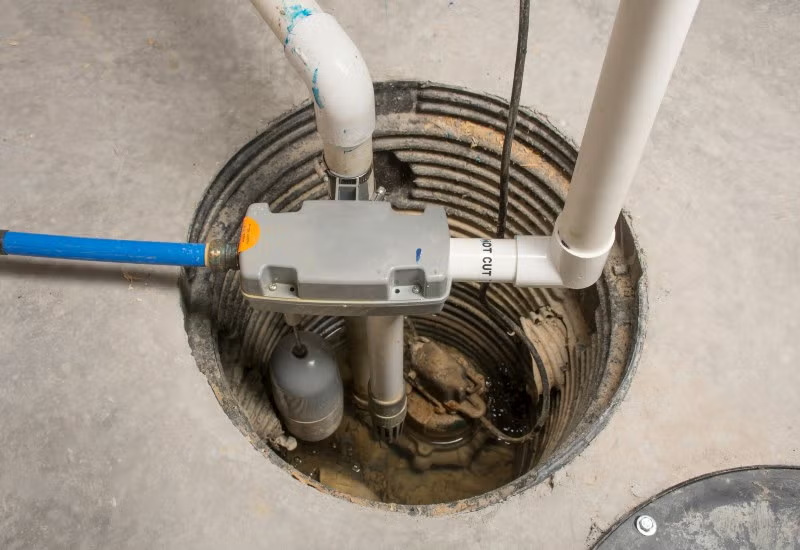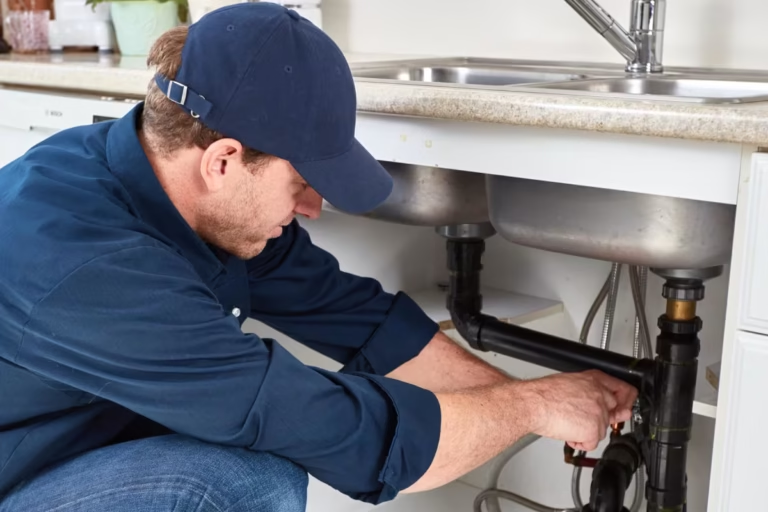
Many homeowners find that a sump is their first line of defense in the event of basement flooding. What happens when power is lost during a severe storm at the very moment you most need to use it? It’s at this point that a backup pump is no longer a luxury.
As weather patterns change, it is essential to invest in a reliable sump pump backup. This will protect your home and prevent costly water damage.
Comprehending Sump Pumps
Sump Pumps are designed to remove excessive water from your crawl space or basement. They are placed in a sump and activate when water levels rise, most commonly due to heavy rains or snowmelt. The pump keeps water from accumulating at the base of your home.
However, sump pumps’ effectiveness depends on their ability to run. As most systems are run by electricity, a power cut during a big storm can render the system useless and leave your basement at risk of flooding.
The Risks Of Relying Solely On A Single System
Let’s be honest: power outages are usually accompanied by storms or flooding. With spring storms causing power outages in areas like the Midwest that can last for hours or even days, a home with a single electrical sump pump is in grave danger. With no backup system, you might face:
- Flooded basements
- Damaged drywall & flooring
- Mold and mildew Growth
- Destroyed appliances, storage
- The cost of restoration is thousands of dollars
It gets worse: homeowners’ insurance often doesn’t cover flood losses, even when they result from equipment failure or poor maintenance.
Why You Should Have a Reliable Backup Sump Pump
When the primary sump pump fails or loses electrical power, your backup sump pump system will automatically take over. These backup systems usually run on battery power and automatically kick in, ensuring you are protected no matter what happens outside.
Battery backup sump pumps offer peace of mind by:
- Ensuring continuous operation during blackouts
- What do you do if you have a primary pump that is overwhelmed?
- Early warnings using alarms, alerts, and notifications
- Helping to prevent basement flooding
A backup system can make all the difference in high-risk areas or in homes older than 20 years with known water issues.
Types And Applications Of Backup Sump Piles
There are basically two types of backups:
1. Backup Battery Pumps
These use a deep-cycle lithium battery, which is charged while the main power supply is on. The battery is activated automatically when the primary pump fails.
2. Water-powered backup pumps
These systems work with municipal water and don’t use batteries or electricity. The systems are less popular and may not suit areas with low or metered water pressure.
Watch For Key Features
When selecting a backup sump, take into consideration features such as
- High pumping capability for matching or supporting your main pump
- Long-life battery, efficient charging system
- The alarm system will alert you if there is any power or pump failure.
- Built to last for heavy use
A qualified waterproofing expert can help you select the optimal choice based on your home’s size, drainage requirements, and power requirements.
The Peace Of Mind That Comes With Year-Round Security
Even though many homeowners don’t think about sump pumps until spring storms or hurricane season, they can cause water damage at any time due to burst pipelines, snowmelt, and unexpected equipment breakdowns. A backup sump provides 24/7 protection, especially if you can’t react quickly when you leave home.
Flood Prevention in the Home – Additional Tips
To protect your home, you should also take some practical precautions.
- Distance your foundation from your yard
- Clean your gutters regularly
- Install a basement waterproofing system
- Test your sump pump every few weeks
- Store valuables in the basement.
Conclusion
No one likes to awaken to a flooded basement and the large repair bill it brings. As unpredictable weather continues affecting homeowners in the United States, preparation is now more important than ever. Installing a dependable sump backup is an easy and cost-effective solution to safeguard your home.
Do not let the next storm reveal any weaknesses in your current system. Invest in reliable backup protection now to prevent water damage.






